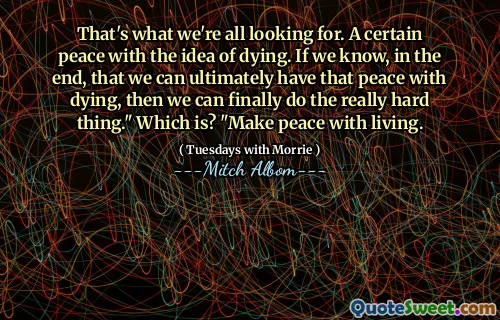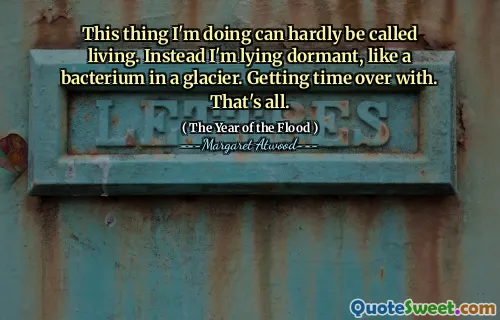Incontinent the void. The zenith. Evening again. When not night it will be evening. Death again of deathless day. On one hand embers. On the other ashes. Day without end won and lost. Unseen.
The passage reflects a sense of existential contemplation, where the interplay between day and night symbolizes life's cyclical nature. The phrases hint at unresolved emotions tied to time, with "the void" suggesting an emptiness that comes at the end of each day. There’s a juxtaposition of vitality, represented by embers, against the stillness of death, embodied in ashes. This illustrates a conflict between existence and the inevitable end, highlighting the paradox of life's continuity.
By invoking the terms "deathless day," the text references an unending experience where each day triumphs yet inevitably leads back to its own conclusion. The notion of "evening" signifies transitional moments that linger in the background, quietly affecting perception and reality. Beckett invites readers to confront these themes of fading vitality and the persistence of time, urging a reflection on how moments can be both alive and yet ash-like in their finality.



